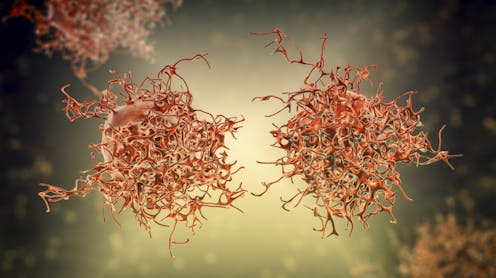
Cervical cancer news, research and analysis - the conversation
- Select a language for the TTS:
- UK English Female
- UK English Male
- US English Female
- US English Male
- Australian Female
- Australian Male
- Language selected: (auto detect) - EN
Play all audios:

April 3, 2019 Kevin Pollock, _Glasgow Caledonian University_ Why it is now realistic to talk about eliminating cervical cancer altogether. October 4, 2018 Alejandra Castanon, _Queen Mary
University of London_ Many countries have swapped Pap smears for the more accurate HPV screening. Why is the UK so far behind? February 1, 2018 James Dickinson, _University of Calgary_
Medical research suggests cervical cancer screening for women under the age of 25 has little impact. Women should therefore be screened at a later age, and less often. January 30, 2018
Suzanne Marie Garland, _The Royal Women's Hospital_ Prevention against cervical cancer is the main aim of the Gardasil vaccine. But HPV is also linked to a large proportion of anal,
vaginal and head and neck cancers. November 30, 2017 Karen Canfell, _UNSW Sydney_ and Megan Smith, _University of Sydney_ For the first time, some Australian women will be eligible to
collect their own sample for cervical screening. While it’s not as accurate as one from a GP or nurse, it could still save your life. November 13, 2017 Louise Makau Barasa, _Eastern
University _ and Nicholas A. Abinya, _University of Nairobi_ There is an urgent need for affordable cancer treatment services, lower drug costs, better equipped facilities, favourable
national cancer policies and specialist doctors in Kenya. November 10, 2017 Rebecca Landy, _Queen Mary University of London_ Smear tests are no fun for women, and the HPV vaccine and better
screening will offer better protection from cancer and fewer trips to the women. August 31, 2017 Terri Foran, _UNSW Sydney_ A new version of the HPV vaccine Gardasil protects against nine
types of the virus, and is already being used overseas. March 28, 2017 Dave Hawkes, _The University of Melbourne_ A new study has found rates of genital warts have decreased significantly
since the HPV vaccine was introduced. March 9, 2017 Terri Foran, _UNSW Sydney_ There is a lot of misinformation about the government’s new cervical cancer screening program that involves
less frequent tests. Here are the facts. February 28, 2017 Jane Williams, _University of Sydney_ and Sally Wortley, _University of Sydney_ The roll-out of a new screening program for
cervical cancer has been delayed, leaving Australian women understandably confused about if or when they need Pap smears. Here’s what they need to know. February 8, 2017 Sarah Allinson,
_Lancaster University_ Obesity is one of the factors behind a large rise in cancer rates among women. February 3, 2017 Electra D. Paskett, _The Ohio State University_ A vaccine to prevent
cancer was long a dream for those who treat the disease. But fewer than half of all girls and even fewer boys have been vaccinated. Cancer specialists hope this will soon change. November 1,
2016 Ophira Ginsburg, _University of Toronto_; Lesong Conteh, _Imperial College London_; Lynette Denny, _University of Cape Town_, and Richard Sullivan, _King's College London_ Of
women who die from cervical cancer, 87% live in poor countries. October 12, 2016 Sue Desmond-Hellmann, _University of California, San Francisco_ Precision public health has the potential to
transform the global health sphere by ensuring that the right interventions are brought to the right people in the right places. October 5, 2016 Nham Tran, _University of Technology Sydney_
and Samantha Khoury, _University of Technology Sydney_ The best way to prevent head and neck cancers, which are more common in men, is to get the HPV vaccine. It’s free for boys and girls
aged 12 and 13. May 16, 2016 Teresa Almeida, _Newcastle University_ Developers are using wearable tech to help women and girls better understand their bodies. March 6, 2016 Emil Jeyaratnam,
_The Conversation_ and Sasha Petrova, _The Conversation_ This body map brings together evidence on proven cancer causes. Using credible, scientific sources it answers questions about whether
alcohol, red meat or sun exposure increase your cancer risk. November 12, 2015 Aisha Mukhtar Dodo, _Cardiff Metropolitan University_ Women in northern Nigeria are not going for cancer
screenings early enough. There are myriad social, cultural and economic reasons for this. But early detection would save their lives. July 8, 2015 Jo Waller, _UCL_ Many common gynaecological
symptoms can also be signs of cancer, so how long should you wait before seeing your doctor?
